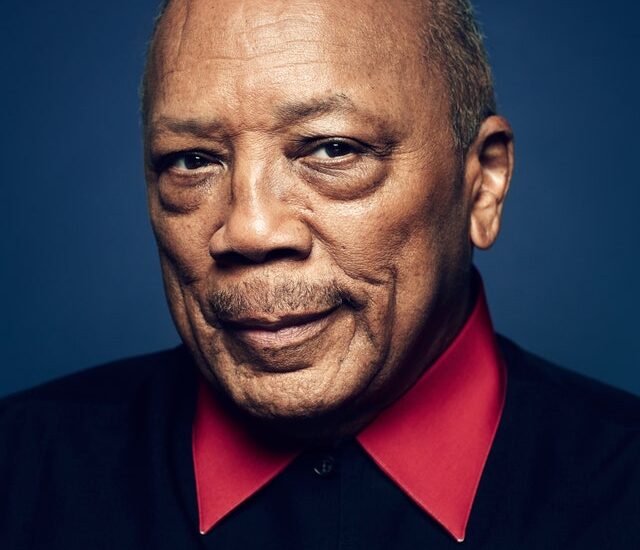
News Now:Quincy Jones on gangsters, David Bowie and Picasso…
Quincy Jones, the legendary music producer, composer, and conductor, has been one of the most influential figures in the world of music for over seven decades. His career spans genres, styles, and generations, and his insights into the art of music and creativity are as profound as his contributions to the industry. Jones has often shared his personal thoughts on a variety of subjects, from his encounters with musical giants to his reflections on art, culture, and the human condition. In recent interviews and public appearances, Jones has shared some intriguing perspectives on seemingly unrelated topics: gangsters, David Bowie, and Pablo Picasso. These reflections provide a unique window into his multifaceted worldview.
On Gangsters: A Love-Hate Relationship with the Underworld
Quincy Jones grew up in a tough neighborhood in Chicago, and his early life experiences shaped much of his worldview. In interviews, he’s often talked about his interactions with gangsters, and how they influenced his understanding of both music and life. Jones’s relationship with the criminal underworld is complex. On one hand, he is no stranger to the allure of the gangster lifestyle. He’s spoken about how growing up in a rough environment made him keenly aware of the power dynamics in his community. He once said, “There’s a certain thing about gangsters that is seductive. It’s the power and the control.”
Jones’s reflections on gangsters show a certain admiration for their ability to exert influence and create loyalty among their followers. However, he also recognizes the darker side of this lifestyle—the violence, the manipulation, and the consequences. He draws parallels between the ruthlessness of gangsters and the sometimes cutthroat nature of the music business. “In the music world, just like in the streets, you have to watch your back,” he explained in a past interview. “There are always people trying to take you down or outmaneuver you.”
Despite the dangerous appeal of the gangster world, Jones is quick to point out that his experiences in music taught him to value integrity, artistry, and hard work above all else. As much as he may have been fascinated by the gangster archetype, he ultimately chose a path that led him toward creating lasting, positive change through his music.
On David Bowie: A Revolutionary Artist and Friend
David Bowie, one of the most iconic figures in rock and roll, was someone who left a lasting impression on Quincy Jones. Their relationship was more than just one of professional admiration; it was also a deep personal bond. Jones often recounts stories of their time working together, highlighting Bowie’s boundary-pushing approach to music and art.
Jones first met Bowie in the late 1970s when they collaborated on the production of Bowie’s album Let’s Dance. The album was a significant departure from Bowie’s previous works, embracing more danceable, funky grooves, and it marked a key point in both artists’ careers. For Jones, working with Bowie was a revelation. “He was one of the most genius minds I’ve ever met,” Jones said. “David was a master of reinvention, always able to stay ahead of the curve and evolve artistically.”
One of the key qualities that Jones admired about Bowie was his fearlessness in exploring new ideas. Bowie was known for constantly reinventing himself, moving from glam rock to soul to electronic, often blending these styles in unconventional ways. According to Jones, Bowie’s ability to take risks with his music was something that inspired him. “David was always ahead of the game,” Jones reflected. “He wasn’t afraid to fail, and that’s what makes a great artist. He understood that if you’re not willing to fail, you’re not really creating anything.”
Jones also appreciated the way Bowie approached collaborations. Their work together on Let’s Dance was marked by a sense of mutual respect and creativity. Jones was not only the producer on the album but also brought in a diverse range of musicians, blending elements of jazz, rock, and funk. For Jones, the album was an example of the power of collaboration, and it showed how artists could work together across genres to create something truly revolutionary.
More than just a musical partner, Bowie was a close friend to Jones. The two shared a deep bond of respect and admiration. In one interview, Jones reflected on their friendship, saying, “David had a great spirit, and he was always looking for deeper meaning in life. He was a very sensitive guy, but also a very brave one. He was fearless in the way he approached life and art.”
You may also like
Archives
Categories
- ABA
- Actor
- Actress
- Actress and singer
- Band
- Baseball
- Basketball
- Boxer
- Broadcasting corporation
- CCR
- cricketer
- Cyclists
- Dart
- Drummer
- Fictional character
- Football game
- Formula 1
- Golf
- Guitarist and songwriter
- Guitarists
- Gymnastics
- Hockey
- Ice hockey
- Marathon
- MLB
- Motocross
- MotoGP
- Motorcross
- Musician
- Musician and drummer
- NFL
- NHL
- NRL
- Racer
- Red bull Racing
- Rider
- Rock band
- Rugby league
- Simone Biles
- Singer and songwriter
- Songwriter and musician
- Sport commentator
- Tennis
- Texas longhorns
- Track and field athlete
- Uncategorized
Leave a Reply